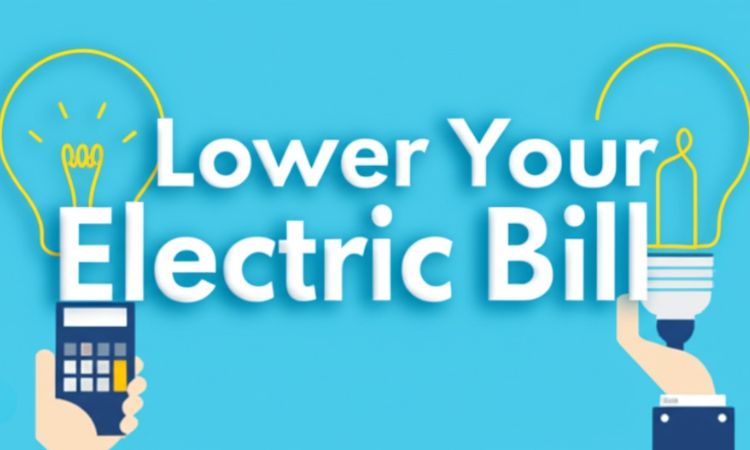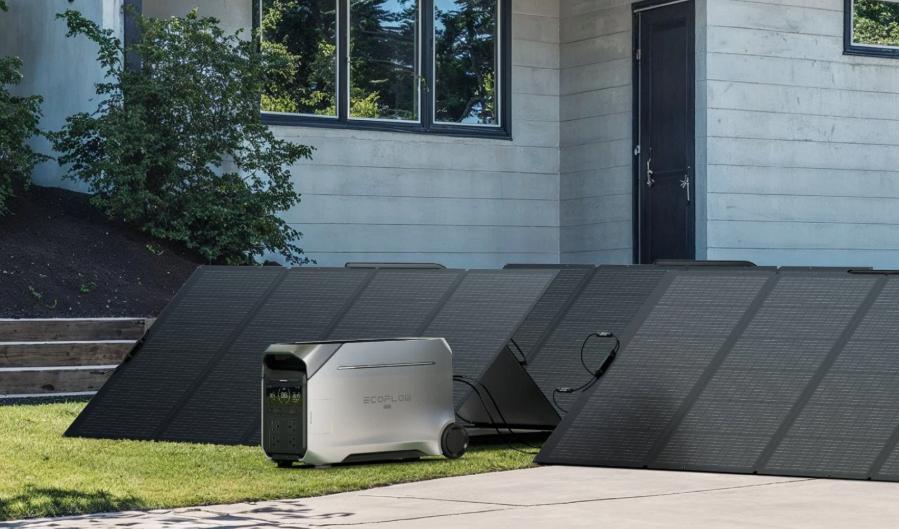What’s the Average Electric Bill UK & Gas Costs
The cost of running a home in the UK keeps rising, putting pressure on households nationwide. On 1 April 2025, millions of households will see their gas and electricity bills go up again as the latest energy price cap takes effect. Everyday expenses, like energy bills, council tax, and broadband, add up quickly, making it harder to manage costs. If you're concerned about rising energy bills and the overall cost of living, understanding the average expenses can help you plan and prepare. This article breaks down the average electric bill UK, the factors influencing them, and ways to reduce your costs. Keep reading!
What Is the Average Energy Cost UK Per Month?
Your monthly energy costs, including the average electricity bill UK, can vary based on several factors such as your property type, location, heating system, energy efficiency, household size, and personal usage. Understanding the average energy costs in the UK can give you a clearer picture of what to expect and help you manage your expenses more effectively.
Average Electric Bill in the UK Per Month
In 2023, the average energy cost UK for a typical household was £1,834 per year or about £153 per month. This estimate includes both gas and electricity costs.
By 2024, the average monthly electricity bill in the UK is £73.41. As of January 2025, the average annual electricity bill is £671.22, excluding the standing charge.
These figures align with Ofgem’s definition of a ‘typical’ UK household, which consists of 2–3 people. According to Ofgem, such a household consumes around 2,700 kWh of electricity per year or approximately 225 kWh per month. However, these estimates assume the household also uses gas. Homes that rely solely on electricity for both power and heating typically face much higher costs due to the higher average cost of electricity per kWh.
Average Gas Bill in the UK Per Month
In 2023, for households on Ofgem’s price cap, average annual gas bills varied by property size:
Flat or 1-bedroom house: £625 per year (£52.08 per month)
3-bedroom house: £901 per year (£75.08 per month)
5-bedroom house: £1,280 per year (£106.66 per month)
These figures are based on the typical gas consumption for each household size.
By 2024, UK households' average monthly gas bill was £69.20. And as of January 2025, the average annual gas bill is £729.10, excluding the standing charge.
How Does Household Size Affect Your Electric and Gas Bill?
Your household size plays a significant role in determining your energy costs. As the number of occupants increases, so does energy usage, leading to higher electricity and gas bills. For larger homes, heating costs increase quickly, significantly impacting the average monthly electric bill in the UK and increasing the average home energy consumption.
For example, a five-bedroom detached house may use up to 2.5 times more energy for heating than a two-bedroom flat, assuming both have similar insulation and heating patterns.
In gas-heated homes, electricity consumption is less affected by size since the number of appliances typically remains similar. However, when combined with gas usage, total energy bills in larger homes can still be nearly double those of smaller properties.
Ofgem categorizes energy usage into three levels based on household size:
| House size | Energy usage | Monthly electricity use (kWh) | Annual electricity use (kWh) | Monthly gas use (kWh) | Annual gas use (kWh) | Average Annual Dual Fuel Energy Bill |
|---|---|---|---|---|---|---|
| Flat/1-bed house | Low | 150 kWh | 1,800 kWh | 625 kWh | 7,500 kWh | £1,247.17 |
| 2-3 bed house | Medium | 225 kWh | 2,700 kWh | 960 kWh | 11,500 kWh | £1,717.27 |
| 4+ bed house | High | 342 kWh | 4,100 kWh | 1,415 kWh | 17,000 kWh | £2,403.47 |
What Factors Influence Your Electric and Gas Bill in the UK?
Several factors influence your total energy costs, including your tariff types, location, payment method, average electricity usage in the UK, and more. Here’s a breakdown of what determines your bill:
Location: Energy prices vary by region due to differences in delivery costs.
Energy price cap: When the cap rises, costs increase; when it falls, bills decrease. The cap applies only to standard variable tariffs, but suppliers can charge less if they choose.
Tariff type: Fixed-rate tariffs remain constant for the contract period (typically 12 months) and are not subject to the price cap. Their rates may be higher or lower depending on when they were set.
Energy usage: The more electricity and gas you consume, the higher your bill.
Payment method: Direct Debit is typically cheaper than other payment options.
Seasonal changes: Energy bills are generally lower in summer due to reduced heating use and longer daylight hours but rise in winter as heating demand increases.


How Is an Energy Bill Calculated?
To better manage expenses, it's essential to calculate electricity consumption accurately. Your energy bill is determined by your gas and electricity consumption within a billing period. It consists of two main components:
Unit Rate: The price per kilowatt-hour (kWh) of energy, which can be fixed or variable depending on your tariff.
Standing Charge: A daily fixed fee that covers the cost of supplying energy to your home, including metering, maintenance, and infrastructure. This charge applies even if no energy is used, similar to a line rental fee.
Your total bill is calculated by multiplying your energy usage by the unit rate and adding the standing charge.
Electricity Charges
To calculate your electricity cost, use this formula:
Electricity units used × Price per unit = Total electricity cost
1. Find your electricity usage:
Previous meter reading: 5,876
Current meter reading: 6,925
Units consumed: 6,925 - 5,876 = 1,049 kWh
2. Multiply by the price per unit:
If electricity costs £0.0532 per kWh, then:
1,049 × £0.0532 = £55.81
3. Add the standing charge (if applicable):
If your provider charges a fixed £8.35 per month:
£55.81 + £8.35 = £64.16
Total electricity bill: £64.16
Gas Charges
To convert gas usage into kWh, use this formula:
Gas units used × Calorific value × Volume correction ÷ 3.6 = Gas usage in kWh
1. Find your gas usage:
Previous meter reading: 7,380
Current meter reading: 7,842
Units consumed: 7,842 - 7,380 = 462 units
2. Convert gas units to kWh:
Given:
a. Calorific value = 39.2
b. Volume correction = 1.02264
462 × 39.2 × 1.02264 ÷ 3.6 = 5,145 kWh
3. Multiply by the price per kWh:
If gas costs £0.0284 per kWh, then:
5,145 × £0.0284 = £146.12
Total gas bill: £146.12
How Can You Lower Your Electric Bill?
Reducing your electricity bill starts with understanding how energy is used in your home. By making minor changes to your habits, improving efficiency, and choosing the right tariff, you can cut costs and lower your overall energy consumption. Here are some practical ways to save on your electric bill.
Installing solar panels: Although there’s an upfront solar panel cost, they can significantly reduce electricity bills over time. Pairing solar panels with a solar generator and storage batteries maximizes savings, providing reliable backup power and increasing energy independence. The right solar generator size depends on your household’s energy needs, ensuring you generate enough power for daily use. Additionally, you can earn money by selling excess energy back to the grid, further offsetting costs.
Switching to a cheaper tariff: Compare energy providers to find a better deal and reduce costs.
Reducing energy consumption: The most effective way to save money is to be mindful of your average electricity consumption, use energy-efficient appliances, turn off unused devices, and adopt energy-saving habits around your home.
Usingaportablepowerstation: A portable power station can store electricity, providing reliable backup power and helping you become less dependent on the grid. The EcoFlow DELTA Pro 3 Portable Power Station is an excellent choice, especially when paired with solar panels. This combo gives you free, renewable energy for home backup or outdoor adventures, significantly lowering your electricity costs.


Conclusion
Understanding the average electric bill UK can help you budget effectively and find ways to reduce your bills. The average energy cost in the UK is affected by household size, property type, and regional pricing differences.
By choosing a cost-effective tariff, investing in energy-efficient solutions like solar panels, and minimizing unnecessary consumption, households can take control of their energy expenses. Moreover, with energy prices subject to change, staying informed and proactive is key to managing energy costs effectively.
FAQs
What is the average utility bill for a 2 bed house in the UK?
The average utility bill for a two-bedroom house in the UK depends on energy usage and rates. Typically, electricity consumption ranges between 2,500 and 3,000 kWh per year. For gas, a two-bedroom household usually uses around 9,000–10,000 kWh annually, though this can vary based on factors like heating type, insulation, and personal usage habits. The total cost will depend on current energy prices and the home's efficiency.
What uses the most electricity in a home?
The appliances that use the most electricity in a home are washing machines, dishwashers, and tumble dryers, which account for around 14% of a typical energy bill. These appliances consume high amounts of electricity because they require significant power to heat water or air during operation.
Which is more expensive, gas or electricity in the UK?
In the UK, electricity is significantly more expensive than gas. Under the current energy price cap (valid 1 April to 30 June 2025), gas costs 6.34p per kWh, while electricity is nearly four times higher at 24.86p per kWh.